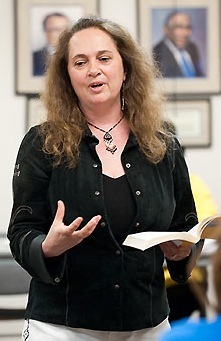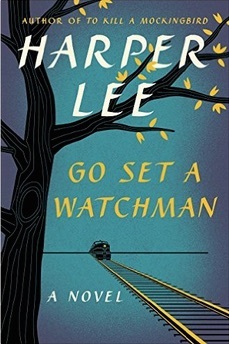More complex Atticus Finch can lead to important discussions, says UW English professor
When readers think of Atticus Finch, they think of the virtuous lawyer from “To Kill a Mockingbird,” brought to life in the movie by Gregory Peck. But in “Go Set a Watchman,” Harper Lee’s just-released sequel, Atticus is depicted as an aging racist who has attended a Ku Klux Klan meeting and denounces desegregation — a far cry from the hero his daughter Scout looked up to — not to mention the more than 40 million people who bought the book.

Emily Auerbach
But this more complicated, perhaps realistic, depiction might not be all bad, says University of Wisconsin–Madison English Professor Emily Auerbach.
“There’s been an almost idealized, saintly portrayal of Atticus that may not have been accurate for its time. There are very few saints,” Auerbach says. “To show Atticus as a product of his environment and show bias that we haven’t wanted to talk about can be a catalyst for discussion.”
Auerbach has yet to read the book but has already committed to teaching it this fall.
“I took a risk because I usually only teach books I’ve read. But this book is of historical cultural significance,” Auerbach says. “In light of everything that’s happening, now is a good time to look at racism more broadly.”
Auerbach will also be leading Tuesday Morning Booktalks at the Madison Public Library this fall. The group will read “To Kill a Mockingbird,” “The Mockingbird Next Door: Life with Harper Lee” by Marja Mills and “Go Set a Watchman.” She thinks reading the three books concurrently will also spark discussion about not only the subject matter but about Lee’s evolution as a writer.

While “Go Set a Watchman” is set after “Mockingbird,” Lee actually wrote it first. Auerbach isn’t surprised that Lee chose to make Finch a more complex character.
“It just means he’s a human being who has strengths and weaknesses like the rest of us,” Auerbach says. “He tries to be ahead of his time but ultimately can’t escape it.”
While its realism may make many bristle, she says that good books should make us uncomfortable at times.
“That’s the power of literature. It gives us a wider perspective and generates discussion,” Auerbach says. “It’s not a bad thing to have a fictional character who isn’t a knight in shining armor. Very few of us are.”
